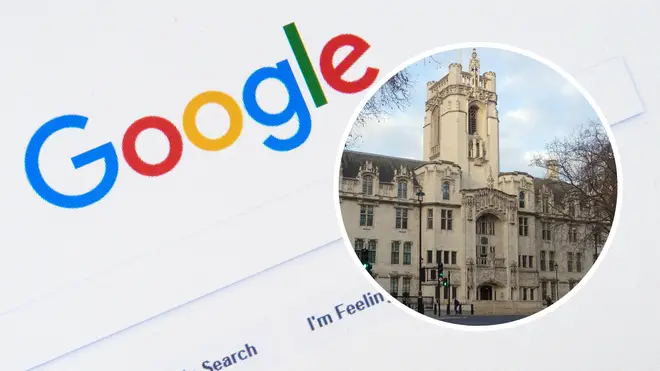
Ian Payne 4am - 7am
10 November 2021, 10:10 | Updated: 10 November 2021, 14:58

A £3 billion legal action against Google over claims it secretly tracked millions of iPhone users' internet activity has been blocked.
The UK Supreme Court has prevented the mass action against the search engine giant from going ahead.
Former Which? director Richard Lloyd, supported by the campaign group Google You Own Us, wanted to bring the action against the US-based tech giant on behalf of around 4.4 million people in England and Wales.
He claimed Google "illegally misused the data of millions of iPhone users", through the "clandestine tracking and collation" of information about internet usage on iPhones' Safari browser, known as the "Safari workaround".
Mr Lloyd and Google You Own Us were hoping to win between $1 and $3 billion in compensation - equating to about £750 per person.
The High Court had in 2018 ruled Mr Lloyd could not serve the claim outside the jurisdiction of England and Wales - but the decision was overturned by the Court of Appeal a year later.
But today a panel of five Supreme Court justices allowed an appeal by Google against that decision.
Giving the lead ruling, Lord Leggatt said it was "unsustainable" that iPhone users could be awarded a uniform sum without having to prove financial loss or mental distress.
"What gives the appearance of substance to the claim is the allegation that Google secretly tracked the internet activity of millions of Apple iPhone users for several months and used the data obtained for commercial purposes," said the judge.
"But on analysis the claimant is seeking to recover damages without attempting to prove that this allegation is true in the case of any individual for whom damages are claimed.
"Without proof of some unlawful processing of an individual's personal data beyond the bare minimum required to bring them within the definition of the represented class, a claim on behalf of that individual has no prospect of meeting the threshold for an award of damages."
Read more: 'Cyber attack' leaves Labour scrambling as it hits members' and supporters' data
Read more: Met Police 'considering' call to investigate 'cash for honours' Tory scandal
At a hearing in April, lawyers for the tech giant argued that the Court of Appeal ruling could "open the floodgates" to claims brought on behalf of millions of people, against companies responsible for handling their data.
Google You Owe Us and Mr Lloyd claimed Google bypassed privacy settings on Apple iPhones and used the data fathered to divide people into groups for advertising purposes.
They claimed the breaches happened between August 2011 and February 2012.
They said information on racial or ethnic origin, physical and mental health, political affiliations or opinions, sexual interests and social class was collected by Google.
Google's lawyers said there is no suggestion the so-called Safari workaround resulted in any information being disclosed to third parties.